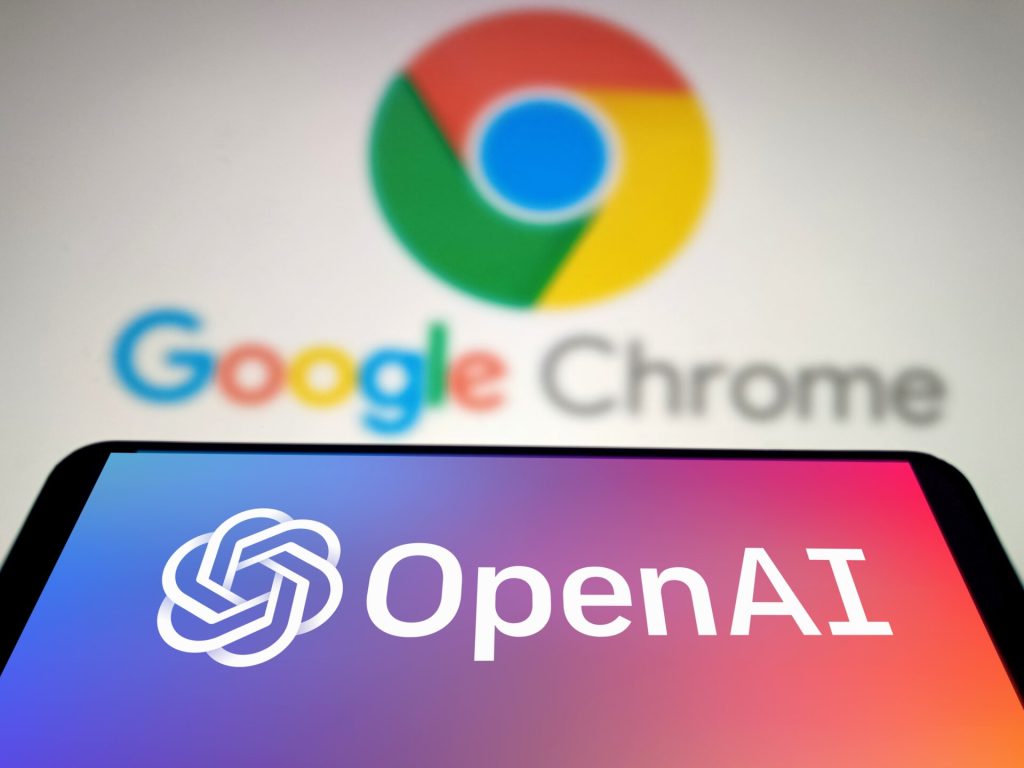As the federal government and Google work through potential remedies for the company’s illegal monopoly over online search, OpenAI is interested in purchasing the Chrome browser, should the court order it be sold off to loosen Google’s grip on the market. According to Bloomberg, Nick Turley, OpenAI’s head of product for ChatGPT, signaled the AI company’s interest in the browser while on the stand testifying at the behest of the Department of Justice.
To be fair, OpenAI’s interest in Chrome is not unique. Turley stated “many other parties” would also want to buy the browser should it become available—and understandably so, seeing as Chrome has about 3.45 billion users globally and holds a nearly two-thirds share of the browser market. Turley and OpenAI also have another compelling reason to suggest there would be a lot of interest in Chrome—Turley’s testimony could help sway the court’s decision to break the browser free of Google’s control.
Whether OpenAI ends up buying it or not, it has a much better shot at doing business with whoever owns a spun-off version of Chrome than with Google, given that it made zero headway trying to get ChatGPT natively integrated into Google’s ecosystem. Earlier in the trial, Turley testified that search technology would be key to OpenAi’s goal of building a “super assistant,” but Google, who is one of OpenAI’s biggest competitors in the AI space, has shut OpenAI out.
Turley laid out some specifics as to why OpenAI would want in on the browser. First and foremost: Distribution. Getting ChatGPT onto more devices has apparently proven a challenge for the company. While it does have integration on iOS devices, Turley claims getting on Android devices has been more difficult, in part because Google allegedly gave some preferential treatment to Gemini, its consumer focused AI product. But also because Google is paying some Android phone makers. The DOJ told the court Monday that Google paid an “enormous sum of money in a fixed monthly payment” to Samsung in order to get Gemini pre-installed on the company’s devices. OpenAI apparently made a bid for that same access, but lost out. Turley said that was “not a lack of trying,” per Bloomberg.
Turley also expressed concern that OpenAI “may be shut out” by some of the bigger companies who “control the access points for how people discover products, including our product.” Apple and Google both maintain control of the app stores for their mobile phones which means that Google can prioritize its own product, Gemini, and Apple can prioritize whomever (ChatGPT is currently number two on the iOS Top Free Apps list). This would all probably register as a slightly more genuine concern if OpenAI weren’t also propped up by a $13 billion investment from Microsoft, which has in turn integrated the startup’s AI model into its search (okay, it’s Bing, but still), browser, AI suite, and standalone devices. And it’s a little hard to imagine OpenAI would operate Chrome as some sort of bastion of open access and not a way to drive users directly to its own search product, ChatGPT Search.
Heck, if it wanted a browser so badly it could just build one off of Chromium, the open source web browser that’s maintained by Google and used as the foundation for multiple browsers including Microsoft Edge, Opera, and Google Chrome. OpenAI has reportedly considered getting into the browser business already, starting conversations about building its own back in November of last year. Yet getting its hands on Chrome would kickstart that whole process. But simply getting Chrome out of Google’s hands might be more important to OpenAI.

